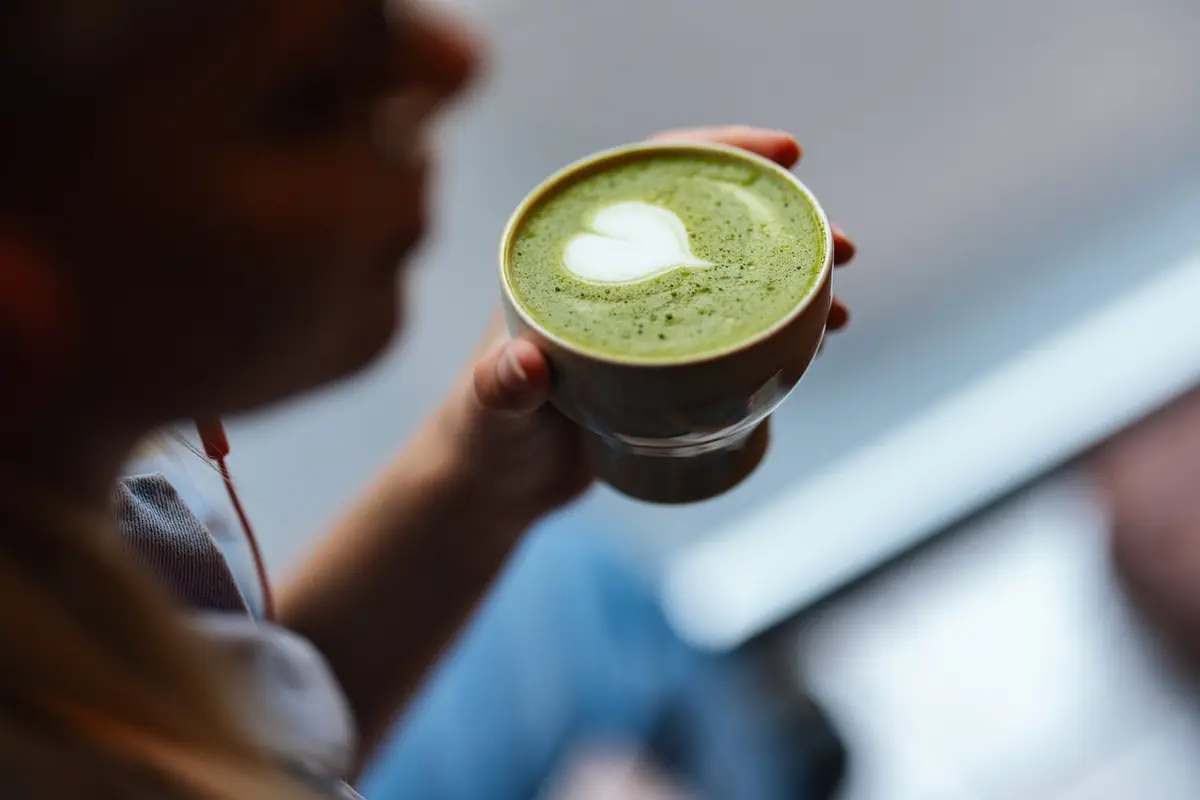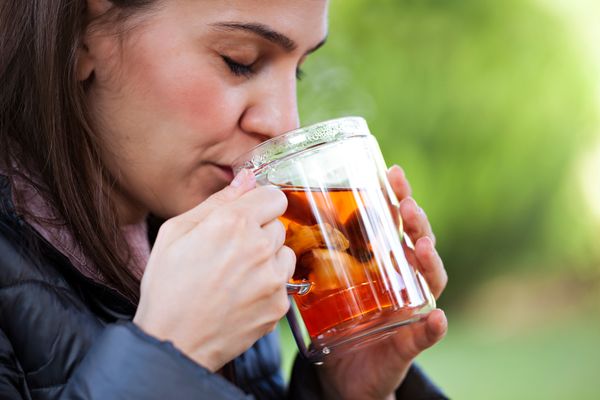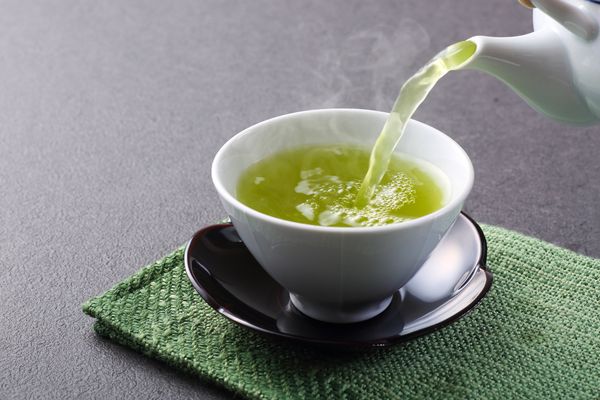Matcha is all the rage now. Matcha lattes, shots, teas and desserts can be found everywhere from coffee shops to health stores.
But this green tea powder has been around for centuries. Preparing and serving matcha has been part of the traditional Japanese tea ceremony for more than 1,000 years. Samurai warriors drank the tea before going into battle to reap its energizing properties. And Zen Buddhist monks drank it to be able to meditate while staying alert.
Matcha is a type of green tea. Green tea is made by steeping leaves in hot water. Then you toss them before you take your first sip. But with matcha, you're drinking the actual leaves.
To make matcha, dried green tea leaves are ground into a super-fine powder. The powder is whisked with warm water to create the light, fluffy matcha tea. Since you're drinking the whole leaf of the tea plant, you get a stronger mix of antioxidants and nutrients than you do with traditionally prepared green tea.
So, what's the deal with this trendy yet pricey tea with an earthy and grassy taste that's so desirable? Learn more and decide if you want to jump on the magical matcha bandwagon.
Matcha can benefit your blood sugar. As long as you're enjoying unsweetened versions, you're good to go. (If you're used to using sweeteners and creams with your coffee, you may want to add flavoring, though it really doesn't need to be sweetened.) However, when matcha is in juices, frozen yogurt, ice cream, pasta sauces, desserts and salad dressings, it can contain a lot of sugar, as well as fat-filled ingredients that can spike your blood sugar. Check the ingredients on the label.
Matcha can help you stay awake and boost your energy. Matcha contains a natural substance called 1-theanine, which triggers a sense of alertness. Compared to the caffeine buzz from coffee, you get more of an alert-calm sensation. So, you have feelings of relaxation rather than drowsiness. Look for caffeine-free versions if you want to drink it before bed. Also note that the higher the price, the higher the quality. So, cheaper teas are probably mixed with matcha and have less caffeine. The best quality matchas are bright green—the greener the matcha, the better.
Matcha may lower your risk of heart disease. Research shows that people who drink unsweetened teas are less likely to develop cardiovascular disease later in life. It can also help fight other chronic diseases like obesity. It's also rich in polyphenols, which have been linked to heart disease protection. To add some matcha to your day, try these Matcha Almond Chocolate Chip Sable. This variation on chocolate chip cookies incorporates matcha green tea powder to give them a boost of healthy antioxidants.
Matcha can help prevent aging. Matcha is rich in catechins, a class of plant compounds in tea that act as natural antioxidants. Catechins look for harmful free radicals in your cells, preventing tissue damage in your skin. (Of course, no single beverage—or food, for that matter—can prevent aging.)
Matcha can help with weight loss. The concentration of EGCG, a super-potent nutrient found in green tea, may be as much as 137 times greater in matcha tea. EGCG can increase the breakdown of fat and block the formation of new fat cells. And if you regularly drink juice, soda and sugary beverages, switching to calorie-free matcha will do wonders for your waistline. But if you're already an avid fan of water, sparkling water, unsweetened coffee and tea, you'll need to do a little more to lose weight. Check out the best teas to drink for weight loss.
Words of caution
- Stick with one to two cups per day since more matcha isn't always better. Drinking too much matcha may lead to health issues like lead contamination or decreased iron absorption.
- Avoid dietary supplements that claim to have green tea extract of matcha. Those products aren't evaluated by the government for safety, so other ingredients in them can interact with medications you're taking.
- If you're pregnant or breastfeeding, consult your health care provider, who will likely tell you to avoid drinking it.
- The Best Teas to Drink for Weight Loss ›
- 11 Benefits of Green Tea You Didn't Know About ›
- How to Drink Green Tea for Weight Loss ›
- Can Hot Beverages Help with Healthy Aging? - HealthyWomen ›







